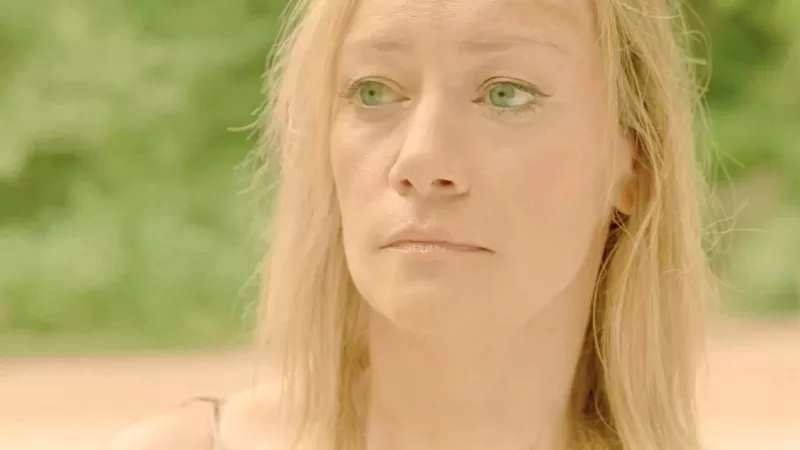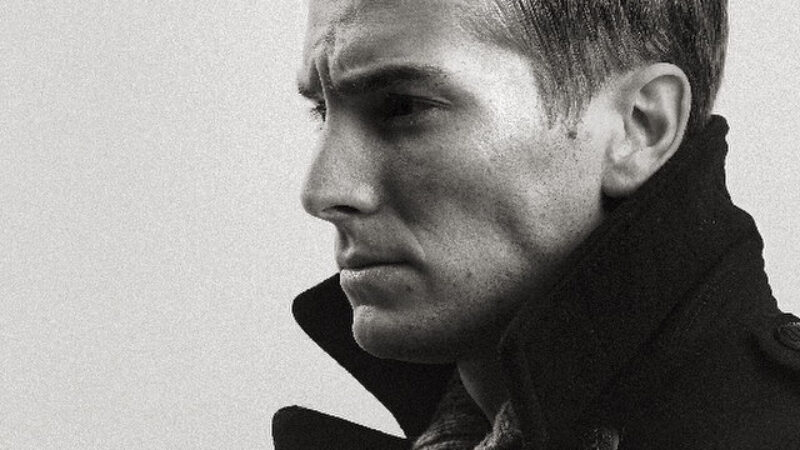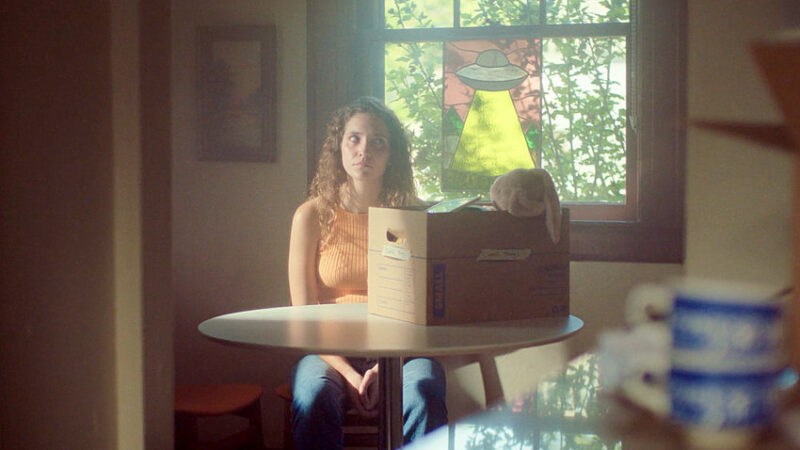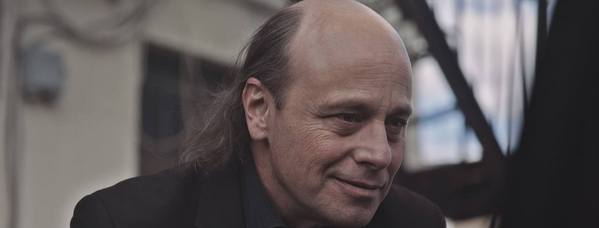
When I was about nine-years old, a friend and I would go to our local library to watch the silent movies of Charlie Chaplin, Laurel and Hardy, and, my favorite, Buster Keaton. Not only was I mesmerized by their expressions, movement and screen presence; but being drawn into how a filmmaker was able to capture an actor’s emotion in one split second without any dialogue fascinated me. It was also great way to get out of the house without my parents worrying about where I was going. My first appearance in a theatrical production was a few years later when I attended a summer program at Tabor Academy, a prep-school in Massachusetts. I would sneak into the theater to watch the students rehearse the musical “Oliver.” I thought I was watching a Broadway show by the level of their performances. I could not believe how talented they were. On a particular day one of the students was not listening to the director. He was joking around and disrupting the production. The director immediately stopped rehearsal, and told the student he was no longer welcome. She turned to me and said—and, I am paraphrasing—“Richard. You have been sitting here for over a week now; you know all of the songs and the choreography. Why don’t you come down and take his place?” I wasn’t sure what to do but all of the other students encouraged me to join them. Needless to say I accepted the challenge and performed as one of the kids in Fagan’s gang, and in the ensemble. I will always remember Joanna Howe for giving me my “first” break. It was a great experience in my early life that I will never forget. After performing in several one-act plays in college, I pursued a more traditional path. I worked in publishing. Got married and started a family. Started a few businesses—some successful; some not so successful. Even worked as a stock broker. After working in various jobs over several years, I made the decision in 2012 to pursue an acting career, realizing “if I do not do it now then I will never do it.”
 Did you study acting
Did you study acting
Although I took theater and speech classes, and performed in several plays at Lehman College and at Tabor Academy, I was a late bloomer to the industry as it were. After being invited to attend a sample class by Jeffrey Zeiner at Weist-Barron Studios in New York City, I was hooked. Jeffrey accepted me into his Acting for Film Technique class where I spent several weeks studying with a small group of actors in an on-camera class . I gained a great deal of confidence in my improvisational abilities, and learned how to work within the time constraints of on-camera acting. At the same time, I decided to do some on-the-job-training. I signed up with Central Casting, and a few other casting agencies in New York City, and was cast as a background performer on several television shows and feature films. During that period I made sure to absorb as much as possible about the workings of a film and television set. In a short period of time, I had learned a fair amount of the tricks of the trade, auditioned for various speaking parts, and made some really great industry contacts. Being featured on some well known television shows in my first year in the business as well as being cast as a principal in several short films and independent features has given me the impetus to work on improving my craft.
What acting technique do you use
Knowing that being in-the-moment at all times during a scene, actively listening and being present, creates the most realistic expression of a character, in my opinion. I try not to “act.” I try to “be.” Depending on the situation, I have incorporated various techniques to make the character believable. Clearly, utilizing sense memory, improvisation, method acting and the Chubbuck and Meisner approaches has led me to understand the nuances in the scene, subtext in the script, and character development. Utilizing those skills hopefully allows me to portray the role how the writer and director intended.
What wrong impressions do actors hold about acting
Because an actor has spent many years in training does not mean they will be immediately signed by an agent or manager or cast in a Broadway show, studio motion picture, or television program. Maintaining reasonable expectations can keep an actor realistic. Although I have been only pursuing this career for a couple of years, I have met many people on this journey. Some have had very lofty expectations and have fallen to the wayside as a result of rejection and self loathing. Keeping a tough skin and perseverance are paramount in this business. Do not get into this business if you think you are going to get rich and famous. It is not about the glitz and the glamor. It is about passion and longevity.
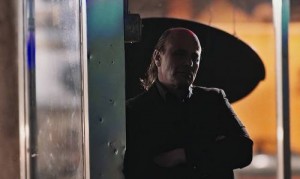 Do you take courses to improve your craft
Do you take courses to improve your craft
Many actors have spent years training in various techniques with different acting teachers and coaches. I, on the other hand, have had some formal theatrical training in secondary and post-secondary educational settings. As mentioned earlier, I trained under Jeffrey Zeiner at Weist-Barron Studios as well as studying in a film acting intensive with a Brazilian filmmaker at The New York Film Academy. With today’s technology, however, I have attended workshops and webinars with some well known acting teachers and coaches, including Benson Simmonds, John Sudol, Alan Gordon and others. Amy Jo Berman provides a great wealth of knowledge with respect to the business of acting and auditioning as does Gwyn Gillis with marketing and coaching. It is also important to take classes and coaching sessions with working actors. They can empathize with your desire to improve your skills yet kick you in the butt if you need some further encouragement.
What acting books do you read
“The Power of the Actor: The Chubbuck Technique” by Ivana Chubbuck
“Sanford Meisner on Acting” by Sanford Meisner & Dennis Longwell
“A Challenge for the Actor” by Uta Hagen
“Respect for Acting” by Uta Hagen & Haskel Frankel
“An Actor Prepares, Building a Character, and Creating a Role” by Constantin Stanislavsky
How do you keep fit as an actor
Besides keeping mentally and physically fit there is one category you may have neglected to mention. While it is important to stay healthy by eating well and getting enough exercise and rest, I think spiritual health, which can be akin to mental health, can go a long way in this business. As an actor you must always be in the moment, no matter what is going on in you personal life, having a positive and secure outlook can make a big difference. Meditation, yoga, and other methods for finding inspiration are great ways to keep your spiritual health in check. I find myself often listening to different types of mood music whenever I feel overwhelmed . Certain musical tones, harmonics and frequencies can change your whole outlook on the world and yourself. I love listening to sounds that help clear the root and heart chakras while exercising, relaxing or going to sleep. It is my way of taking control of a situation when all else fails.
When you’re offered a role, what do you do next
The first thing I do when offered a role is to give thanks. Staying humble and keeping in mind how blessed I am to be able to have a job that I actually love—even though I do not get to work everyday. After that, I will usually read the script several times and take copious notes. Once I’ve read the script and reviewed my notes, I will take a short break before going back into it. Before the table read, if there is one, I will make sure I know all of the character’s names, their relationships to each other, and determine how my character fits into any given situation. I will practice my lines so the words eventually become a part of me. Using a voice recorder is a useful tool to remembering dialogue as well. When I go to bed at night, I will think about both my character’s dialogue and my scene partners’ dialogue while falling asleep. Repeating the dialogue when waking up in the morning reinforces the memory pattern.
How do you take a character in a script to a honest, believable and breathing person
Taking any character—fictional or non-fictional—and making him or her human is especially difficult. Who is this person? What is their motivation at any given moment? What risks and choices am I willing to take with this character? What behavioral changes does he go through during the scenes? Building a character based on past experiences; watching other people’s reactions to everyday situations; seeing the character’s world through the outside looking in are just some of the ways I approach developing and fleshing out a character.
How do you stay fresh on set
Being present and having the advantage of watching and absorbing some of the world’s greatest actors and actresses perform is an enormous benefit. Taking a little bit of each of their traits and building it into my work flow allows me to stay in the moment at all times while on set. There is often long periods of down time while filming. In order to stay fresh, and in character, I will listen to soothing music, run lines with scene partners, try to stay off the phone and the Internet, and always be close and available to production in case they need to discuss things with me.
Describe a memorable character you played
Portraying the role of ‘David’ in Grace McLeod’s short film Under the Table in 2014 is one of the most memorable characters I’ve played to date. As a wealthy husband and father of two daughters, living on the Upper East Side of Manhattan, the character had many emotional arcs and behavioral changes that were challenging to say the least. While he was for the most part emotionally vacant, he had to deal with his wife’s liberal hypocrisy and insipid cooking, his youngest daughter’s sarcasm, and finding out during Thanksgiving dinner that his eldest daughter was coming out of the closet with her African-American girlfriend. The film premiered at the Tribeca Film Festival and went on to several other festivals. It was also featured in a front page story in a Sunday, Metropolitan Section of The New York Times and other publications, and was reviewed by David Simons of NPR.
Explain one creative choice you took on set
While filming the WB television show The Carrie Diaries, I spent a few minutes discussing the scene with Emmy nominated director, Alberto Gomez-Rejon. It was a moment when my character had to react to one of the lead actor’s provocative line. The director asked me to play the character as ‘creepy but funny’ among other actions in the scene. I had to dig deep to find the right choice for that particular interaction. There was no time to rehearse, and no time to run through the scene; it was shot naturally and organically a few times. That scene made the final cut.
What do you want most from a director
Most times asking the director what he expects prior to going on camera allows us both to bring the character to life. It is a wonderful experience when the director can help you connect not only to your character but with your scene partners as well. I will often ask, or I am given, notes to improve or tweak the performance. If the director doesn’t have anything to say, you know you’re on the right track. Putting total and implicit trust in the director will help you find his or her thought process for the character’s behavior for any given moment. After all, actors will work on a project for a day, a few days, weeks or months. The director, however, will sometimes spend the next year or more putting together the finished product.
What actors do you long to work with
That is a tough question to answer since there are so many great actors and actresses with whom I would long to work alongside. But, if I would have to chose just one person, it would be Mr. Robert De Niro.
Why
In my opinion there is a natural flow, which appears effortless, to Mr. De Niro’s acting style. It’s as if you’re sitting across from him and having a one-on-one conversation no matter what character he’s playing. There is this sense of attachment, a connection, an emotional bond that he makes with the audience when he performs. To me, Mr. De Niro stands out because of the bold choices he makes with his characters.
What advice would you give to actors
If you have made the decision to be an actor the most important advice I can give is to never give up. This business is an emotional roller coaster with fabulous highs and the lowest lows. People will often ask you what they may consider harmless questions.: How much money do you make? That’s all you make? Did you get a speaking role? Why are you doing this? Don’t buy into their judgments of you. Treat each achievement, no matter how big or small, as the greatest gift and you will be able to get through the tough times. Keeping a positive attitude at all times—despite the rejection, despite what other people may think or say about you—is essential to your longevity in this business. Another piece of advice is to network as much as possible. Meet as many people as you can in the industry, but make sure to always leave a good impression. You never know. A director, writer, producer or casting director you meet at a networking event may ask for you to come in and read for a role they are casting.
Briefly write about your career
During my short time as an actor, I have had the privilege to work on several television and film sets. I have appeared as the Attorney General on Law & Order: SVU; The Carrie Diaries as Mr. Kydd’s Friend, 1.7 Alpha (in production) as Dr. Gordon Davis aka The Man in Black, Under the Table as David; Bag Boy Lover Boy as the Businessman (Customer); Ask Jeeves: Where is He Now? as Jeeves; Doctor Me as the Butler; The Couple as the Husband; Lose One Friend as Carter Monroe; Nostrae Realitate as O’hara; the web series Vengeance as Tina’s father; Greetings from California as Military Officer 1; Saving Rohan as Pastor James; Deadly Sins as Detective Pefall; The Psychotics as Albee Renfro; The Human Trust as the Prime Minister of Luxembourg; ADAM as Karl; The Lottery as the Chairman. I have also provided voice over work for a Spotify advertising campaign, and have appeared in print ads for Trinity Health and NYU Langone Medical Center. Having had the opportunity to portray these and other roles has impacted my life like no other career has. It has allowed me to expand my creative energies by bringing words on a piece of paper to life. I hope to continue finding new roles, portraying different characters that audiences can connect to; to make projects I work on better with my presence, and to be always open to learning new ideas along the way. As Ralph Waldo Emerson said, “Life is a journey, not a destination.” Rich is represented by Julia Parmeter at The Parmeter Group


